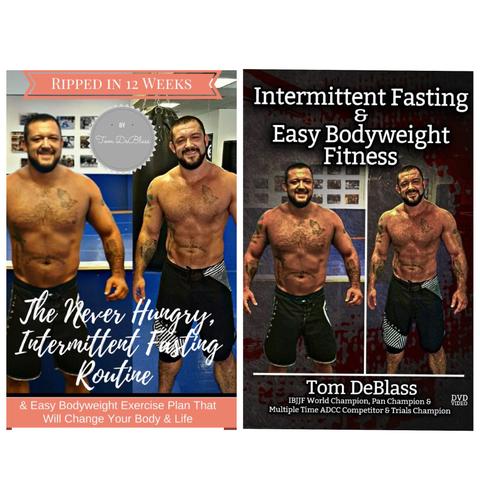Guest post by Evolve MMA, Asia’s premier championship brand for martial arts. It has the most number of World Champions on the planet. Named as the #1 ranked martial arts organization in Asia by CNN, Yahoo! Sports, FOX Sports, Evolve MMA is the top rated BJJ gym in Singapore.
We’ve long been made to think that carbs (or carbohydrates) are the enemy and that we should stay away from them. It’s a very popular approach to weight loss and fitness, and for the most part, it actually works.
But a lot of the information passed around is misguided, and you should in fact dive deeper into the matter to make a better, more informed decision about carbs. How much of it do you cut out of your diet? Or do you skip carbs entirely?
Let’s take a closer look.
What Are Carbohydrates?
In order to understand carbs better, you need to know what they are. In chemical terms, carbs are defined as neutral compounds of carbon, hydrogen, and oxygen.
In terms of nutrition, carbs are an integral part of a well-balanced diet. In fact, carbs are essential to your health. Consisting of mainly sugars and starches, carbs constitute one of the three main types of nutrients your body uses for energy (calories). They are the primary source of energy your body turns to first, before using anything else.
To put it plainly, you shouldn’t cut carbs out of your diet completely. Instead, you should make them work for you.
Most people who want to cut carbs out of their diets are doing so to lose weight, and it’s a great strategy if done correctly.
Periodized Nutrition
For those looking to lose weight fast, cycling carbs according to your personal needs and activity levels may be a better option. Carbs are the body’s first source of energy, especially if you work out. If you do work out, you’ll need to feed your body correctly. By cycling your carb intake, you will prevent muscle loss and maximize fat loss.
There’s no one-size-fits-all nutrition plan for everyone. Each body type is different, so your nutrition plan should be catered to you and your specifications. Health and fitness are multidimensional, and the best way for you to reach your goals is to plan your diet and nutrition by considering them both.
In this case, periodized nutrition is a wonderful concept that promotes flexibility within your diet and tailoring your food intake to meet the demands of your workout routine. In simpler terms, it means increasing your carb intake to prepare for the demands of an intense workout, and decreasing when your body doesn’t need that much energy.
Here are a few tips to help you make better decisions.
1) Evaluate your lifestyle and fitness goals
Your goals determine your diet and workout plans, and your plans determine how much food you actually need to eat. Ask yourself what your current goal is and evaluate your fitness regimen. Answering these questions will help you properly plan your diet.
Some individuals want to lose weight, while others want to gain weight. Some train twice a day while others only sparingly. Understanding your current goal allows you to know your dietary needs and help you periodize your nutrition.
Consuming carbs early in the day to prepare for specific energy and caloric needs, and cycling off carbs late at night is best, especially if you’re physically active.
2) Minimize junk carbohydrates
It goes without saying that you should minimize your intake of notorious carbs found in junk food that contains a lot of added sugars. Things like breakfast cereals, sugary snacks, and soft drinks may taste good but are definitely bad for you. These are known as junk calories, or calories with little to no nutritional value.
Junk calories are excess carbohydrates that you definitely need to remove from your diet. Instead, consider switching up your carb source.
Not all carbs are created equal, however, even the presumed healthy ones. You will want to get your carbs from natural sources like fruit and vegetables, which are also high in fiber, and avoid refined carbs like rice, pasta, potatoes, and grains, among others. At the same time, it’s essential that you increase your intake of fat (the good kind) and lean protein.
Junk carbohydrates are the kind that you can cut from your diet completely. Stop eating them and never look back.
3) Benefits of low-carb dieting
There are obviously many positive results from a low-carb diet, which is why it’s so popular.
Decreasing carb intake leads to a reduced appetite. Studies show that when people cut carbs out of their diets and consume more protein and fat, they end up eating fewer calories. As previously stated, cutting carbs has great weight loss effects, and this is just one of the many reasons why that is.
Another benefit of low-carb intake is that triglyceride levels in your body tend to drop drastically. Triglycerides are fat molecules that circulate in your bloodstream. A high level of triglycerides is a strong heart disease risk factor.
Last but not least, low-carb dieting leads to reduced blood sugar and insulin levels. It also helps lower blood pressure, as well as prevent metabolic syndrome, which is a condition associated with a higher risk of diabetes and heart disease.
4) Beware of the low-carb flu
Carbs are ready sources of energy, and without the availability of such, your body will cope with it in different ways. Some people experience a low-carb flu when they suddenly cut carbs out of their diet.
Some effects of this include tiredness, weakness, dizziness, headaches, irritability, and nausea, among others. They can last for days, even weeks, so don’t be alarmed.
The fact of the matter is, your body prefers glucose as its primary energy source. Given the choice, your body will use available glucose first, before it turns to other sources such as stored glycogen, fat, and if things go sideways, even muscle.
Also, when the body can’t find glucose, it tries to produce its own through a process referred to as gluconeogenesis. It’s when the liver takes amino acids from protein to make glucose.
The reason you feel under the weather when you suddenly cut carbs out of your system is that your body is so used to having that glucose that it tries to scramble when it’s no longer available. This typically dissipates when your body gets used to it and turns to ketosis to make up for the lack of glucose.
If you’re ready to trade in your “Dad Bod” or you’ve always wondered if there was an easy-to-follow nutritional and exercise plan that will get you in the best shape in your life, without endless hours in the gym or trying to survive on lettuce and water, then look no more. BJJ Fanatics has brought one of the most respected BJJ martial artists, teachers and school owners, Tom DeBlass in to share the simple to follow secrets that have him in the best shape of his life at age 35! Check out “Ripped in 12 Weeks” available here where Tom will share all of his nutritional and fitness secrets in an easy to follow format, complete with guidebooks and recipes.
The post How To Manage Carbohydrate Intake: Should You Go On A Low-Carb Diet? appeared first on Bjj Eastern Europe.



